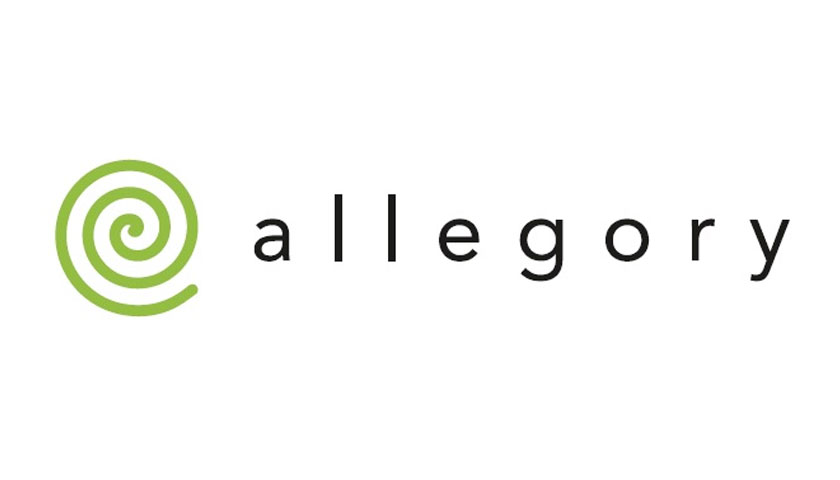Award-winning strategic communication agency Allegory has launched a report Corporate Digital Responsibility: What You Need To Know Right Now which sets out the urgent need for organisations to act on issues related to Corporate Digital Responsibility (CDR) and provides a framework to support leaders with planning and communication.
Allegory’s report reveals that the management of risk where data and digital are concerned is the collective responsibility of the board of directors. Underestimating those risks can lead to significant reputational issues and ultimately affects profits. This is why a multi-stakeholder approach, led by management and communicators, is needed to address CDR. When done well, this can lead to an increase in both stakeholders’ trust and market share.
CDR risk issues
Corporate Digital Responsibility – a broad set of responsibilities related to the application and management of data and digital technologies – has emerged as a critical risk issue for boards in light of high profile failures in data and digital governance, regulatory issues and data breaches.
These include failures of systems, including the Post Office Horizon scandal, and the misuse of personal data like the facial recognition system removed from London’s King’s Cross in 2019 amid protests from the public and privacy campaigners.
Digital transformation is happening at an exponential rate, leading to more and more data being generated. In this context, every board should have data governance and management as a top priority. There is an explicit expectation when individuals share their personal data with an organisation that it will be handled securely. However, data breaches or leaks have become commonplace. For example, Facebook is under investigation for an alleged breach of EU privacy laws after the personal information of 533 million users was shared online.
Consumer trust is often overlooked in the race to innovate with data and digital technologies, and this can lead to clashes with regulation. For example in February 2021, the Organisation for the Review of Care and Health Apps (ORCHA) found that only one in five health and wellbeing apps meets clinical standards and ensures the integrity of patient data.
Strategic need for CDR
CDR shares some of the principles and goals with an organisation’s commitments on Corporate Social Responsibility (CSR) and the emerging Environment, Society, and Governance (ESG) agenda. It also provides a common language and promotes both awareness and understanding of the importance of an ethical approach to data.
For organisations, the rise of data heralds both the opportunity to enhance performance at a micro level and the potential to play a part in addressing society’s bigger issues, such as climate change, diversity and sustainability. It is vital that C-suite leaders and communicators, with support from data governance experts, approach CDR as a strategic issue.
Charlotte McLeod, Chief Executive Officer, Allegory says:
“Data and digital must work for everyone in society and be used responsibly as they are considered to be powerful strategic business assets that can generate growth and trigger innovation. But, they both need to be governed by principles in order for organisations to create the most value. This is why CDR is an issue of great importance that should be a priority for senior management. It has the potential to help organisations maintain and build trust with their stakeholders, and address ethical issues. There is a growing need for organisations to balance data protection standards and also create conditions for innovation and growth.”
A framework underpinned by ethics
The report reveals that to get started with CDR, organisations need to develop a framework, underpinned by ethical values, such as decency and integrity, to describe their management of data. This includes spending time navigating data ethics, which involves assessing and identifying potential ethical issues associated with data and digital tech.
Adopting a multi-function, multi-stakeholder approach is a good starting point outlined in the report. Data and digital responsibility should be embedded within organisational culture and everyone within an organisation should consider it part of their role.
“Communications professionals too have a pivotal role to play in the process of making organisations CDR-fit. To do so, they need to be fully immersed in the issues surrounding data management and processing in their organisations to offer the best professional advice and support possible.” says Charlotte McLeod, CEO, Allegory.
The Corporate Digital Responsibility: What You Need To Know Right Now report proposes a six-stage framework that communications professionals can use to help organisations stay on top of CDR:
- Landscape analysis and audit
- Comms planning
- Community of practice
- Horizon scanning
- Internal communications
- Stakeholder engagement underpinned by open and transparent communication
“Communications professionals often get involved when a crisis arises, but this is too late! They need to take part in early conversations to address potential and existing issues related to data and digital within an organisation in collaboration with C-suite executives. This is a collective action needed to future-proof an organisation, safeguarding its reputation and profits,” Charlotte McLeod added.
